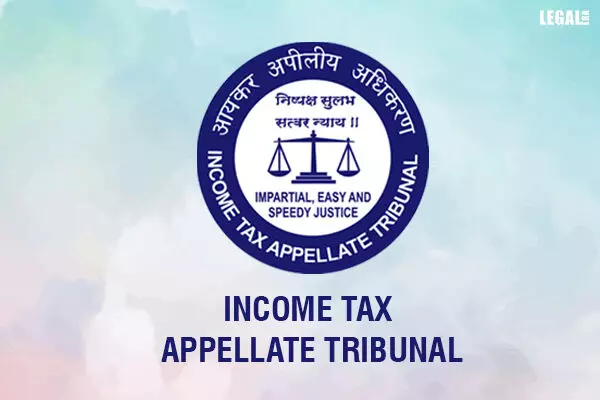- Home
- News
- Articles+
- Aerospace
- Artificial Intelligence
- Agriculture
- Alternate Dispute Resolution
- Arbitration & Mediation
- Banking and Finance
- Bankruptcy
- Book Review
- Bribery & Corruption
- Commercial Litigation
- Competition Law
- Conference Reports
- Consumer Products
- Contract
- Corporate Governance
- Corporate Law
- Covid-19
- Cryptocurrency
- Cybersecurity
- Data Protection
- Defence
- Digital Economy
- E-commerce
- Employment Law
- Energy and Natural Resources
- Entertainment and Sports Law
- Environmental Law
- Environmental, Social, and Governance
- Foreign Direct Investment
- Food and Beverage
- Gaming
- Health Care
- IBC Diaries
- In Focus
- Inclusion & Diversity
- Insurance Law
- Intellectual Property
- International Law
- IP & Tech Era
- Know the Law
- Labour Laws
- Law & Policy and Regulation
- Litigation
- Litigation Funding
- Manufacturing
- Mergers & Acquisitions
- NFTs
- Privacy
- Private Equity
- Project Finance
- Real Estate
- Risk and Compliance
- Student Corner
- Take On Board
- Tax
- Technology Media and Telecom
- Tributes
- Viewpoint
- Zoom In
- Law Firms
- In-House
- Rankings
- E-Magazine
- Legal Era TV
- Events
- Middle East
- Africa
- News
- Articles
- Aerospace
- Artificial Intelligence
- Agriculture
- Alternate Dispute Resolution
- Arbitration & Mediation
- Banking and Finance
- Bankruptcy
- Book Review
- Bribery & Corruption
- Commercial Litigation
- Competition Law
- Conference Reports
- Consumer Products
- Contract
- Corporate Governance
- Corporate Law
- Covid-19
- Cryptocurrency
- Cybersecurity
- Data Protection
- Defence
- Digital Economy
- E-commerce
- Employment Law
- Energy and Natural Resources
- Entertainment and Sports Law
- Environmental Law
- Environmental, Social, and Governance
- Foreign Direct Investment
- Food and Beverage
- Gaming
- Health Care
- IBC Diaries
- In Focus
- Inclusion & Diversity
- Insurance Law
- Intellectual Property
- International Law
- IP & Tech Era
- Know the Law
- Labour Laws
- Law & Policy and Regulation
- Litigation
- Litigation Funding
- Manufacturing
- Mergers & Acquisitions
- NFTs
- Privacy
- Private Equity
- Project Finance
- Real Estate
- Risk and Compliance
- Student Corner
- Take On Board
- Tax
- Technology Media and Telecom
- Tributes
- Viewpoint
- Zoom In
- Law Firms
- In-House
- Rankings
- E-Magazine
- Legal Era TV
- Events
- Middle East
- Africa
ITAT: Section 54 Deduction Cannot Be Rejected For Not Depositing Long-Term Capital Gain In Account Scheme

ITAT: Section 54 Deduction Cannot Be Rejected For Not Depositing Long-Term Capital Gain In Account Scheme
States that the exercise of power under Section 263 to revise the assessment order was invalid
The Delhi Bench of the Income Tax Appellate Tribunal (ITAT) has held that deduction under Section 54 of the Income Tax Act, 1961 cannot be disallowed merely for not depositing long-term capital gain (LTCG) that was not deposited in the capital gain account scheme.
The bench of Saktijit Dey (Vice President) and M. Balaganesh (Accountant Member) adopted a hyper-technical approach while dealing with the issue. The judges stated that when the basic conditions of Section 54(1) were satisfied, the assessee was entitled to claim the deduction under Section 54 of the IT Act.
The appellant-assessee is a resident individual. The Assessing Officer (AO) received information that the assessee sold an immovable property for Rs.62,06,000 and re-opened the assessment under Section 147.
On receiving a notice issued under Section 148, the assessee filed her Income Tax Return (ITR) declaring income of Rs.6,42,470, as already declared in the original ITR.
However, the AO directed the assessee to furnish the details of the properties sold and the resultant capital gain. The latter submitted the details of the property sold and the capital gain arising out of it.
The AO then discovered that the property was under the joint ownership of the assessee and another co-owner and was purchased for an amount of Rs.20 lakh. Out of that, the share of the assessee was Rs.10 lakh, whereas the property was sold for Rs.62,06,000. Thus, the assesses’ share was Rs.31,03,000.
On reducing the cost of acquisition and indexation benefit, the LTCG arising out of the sale of property was Rs.14,59,324. The assessee invested in the purchase of a new residential property for the entire capital gain amount and, therefore, claimed exemption under Section 54. The AO accepted the ITR, and the assessment was done.
However, the Principal Commissioner of Income Tax (Appeals) later found that the capital gain amount was not deposited in the capital gain account scheme during the interim period until its utilization in the purchase or construction of the new property. The PCIT stated that due to the non-consideration of these facts, the assessment order was erroneous and prejudicial to the interest of the revenue department.
The PCIT thus issued a show-cause notice to the assessee stating why the assessment order should not be declared erroneous.
Thereafter, the assessee furnished a detailed reply objecting to the proposed action under Section 263.
However, the PCIT rejected it and set aside the assessment order. It directed the disallowance of the deduction claimed under Section 54, as the assessee failed to deposit the capital gain amount in the capital gain account scheme.
The ITAT held that only because the capital gain was not deposited in the scheme, the revisionary authority treated the assessment order as erroneous. It stated that the exercise of power under Section 263 to revise the assessment order was invalid.
Thus, the tribunal quashed the order and restored the assessment order.



